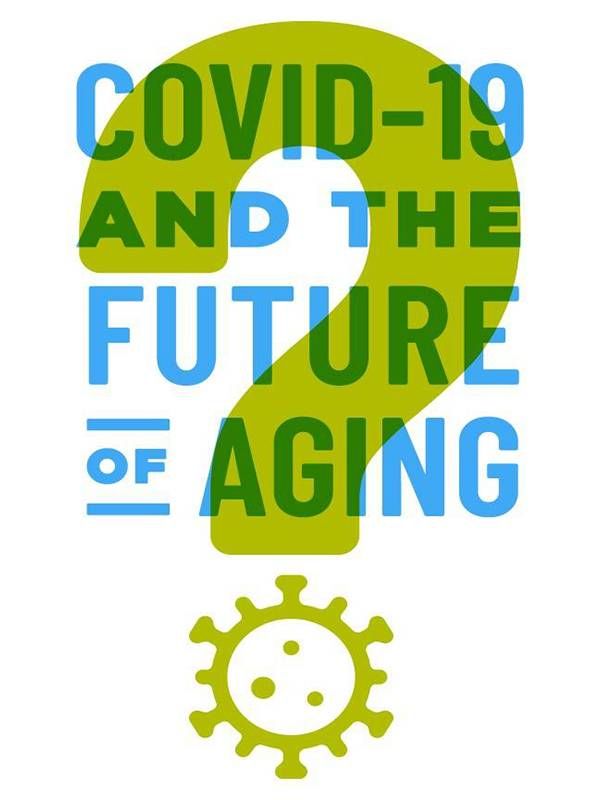COVID-19 and the Future of Aging: What 20 Experts Told Us
Why they were clear-eyed, yet optimistic about the future
Editor’s note: The Milken Institute Center for the Future of Aging and Next Avenue recently finished publishing a 20-piece weekly joint series, COVID-19 and the Future of Aging. The articles were Q and As with thought leaders in fields ranging from health care to retirement planning to intergenerational relationships. Here the Milken Institute Center's Chairman reflects on what the experts said.

In our series partnership with Next Avenue, we have interviewed members of our Milken Institute Center for the Future of Aging Advisory Board who are leaders from business, health, academia, policy and philanthropy. All aim to improve the lives of today's older adults and ensure a better future for generations to come.
After the pandemic year of hospitalizations and deaths, failed businesses and lost jobs, social isolation and dreams deferred, these thought leaders were clear-eyed yet optimistic about the future.
Repeatedly, they spoke of the need to overcome technological divides and disparities that leave far too many people on the sidelines.
With progress on vaccine supply and distribution and a "new normal" on the horizon, they were eager to share their insights about the longer-term consequences of our COVID-19 experience, the challenges and risks ahead and their hopes for how all of us can emerge from this difficult time for the better.
Our interviewees discussed a broad range of issues as they considered the effects of the virus. Topics included chronic disease, the economy and jobs, caregiving, architectural design and community services. While the ideas differed, common themes surfaced — suggesting critical areas of opportunity for focus and directed efforts to realize the silver linings of a tragic pandemic.
4 Themes From the Thought Leaders
Many of the thought leaders advocated the following four themes:
Advancing Research. The disproportionate harm inflicted upon older adults and communities of color by COVID-19 demand further action to understand the underlying biological and social mechanisms and develop effective interventions. Leading health experts from our Advisory Board highlighted the urgency of investment in geroscience research that delves deeper into the biology of aging, and dissemination of information about effective public health measures to support healthy longevity, including exercise and nutrition.
Our Commitment to Covering the Coronavirus
We are committed to reliable reporting on the risks of the coronavirus and steps you can take to benefit you, your loved ones and others in your community.
Read Next Avenue's Coronavirus Coverage
One encouraging outcome of the pandemic has been the dramatically increased global collaboration among scientists, companies and government agencies, which our experts believe should be nurtured, incentivized and reinforced through progressive policies and practices.
Adopting Technologies. From our health care to our jobs and homes, the COVID-19 pandemic has accelerated shifts toward a technology-enabled future, reshaping trends and preferences along the way.

Our daily lives have been profoundly impacted by this rapid change — a remote-first approach to obtaining many of the necessities of life. Technology and digital solutions were identified by our experts as powerful tools to increase health care quality and access, social connectivity and supports that can enable older adults to age in place.
While these are just a few of the many upsides to increased integration of technology into our lives, the thought leaders said there is significant work ahead to make sure that all can benefit.
Repeatedly, they spoke of the need to overcome technological divides and disparities that leave far too many people on the sidelines, without adequate access to smartphones, computers, broadband services, a range of emerging digital tools and assistance with financial literacy.
An equity lens, they noted, must be laser-focused on programs designed to ensure that the considerable promise of technology extends across all ages and communities.
Tackling Ageism. Sadly, the pandemic brought attention to the enduring scourge of age bias in our society and culture. Our experts cited the visible ageism percolating during a time when we should have come together to protect those most at-risk.
From the failure to effectively respond to a nursing home crisis, to advocacy from some quarters for "focused prevention" by segregating people by age, to elevation of the "OK boomer" meme, the negative effects of ageism became clearer than ever over the past year.
Ageism permeates the day-to-day experience of older adults — in the workplace (where older workers encounter barriers to employment), in health care (where perceptions of age may negatively influence treatment) and in the media (where older adults are routinely portrayed in stereotypical ways). This has been especially apparent during the pandemic, as the interests of the older and younger segments of our population have too often been pitted against one another in debates about curbing the spread of the virus.
To realize a future where older adults are valued, empowered to shape their work and social lives and meaningfully engaged in their communities, our experts urge that we tackle ageism now, whenever and wherever it is encountered.
The challenges of recovery are just beginning, and the work ahead can be daunting.
Promoting Intergenerational Connection. Multigenerational engagement, intergenerational connection and a lifespan approach to planning and policymaking can be a potent tonic to build bridges, not walls, between the generations. Our experts advocated for the creation and fostering of intergenerational workforces and initiatives, community spaces and living arrangements to enhance understanding, collaboration and comity.
From increasing financial wellness and improving health to reducing social isolation and loneliness, intergenerational solutions offer powerful opportunities to increase understanding and empathy and solve vexing social challenges.
By encouraging these connections as part of a pandemic recovery plan, our experts believe that we can apply the lessons learned from our work on aging to a wider array of issues, supporting underserved and undervalued populations beyond older adults.
The COVID-19 pandemic has exposed failures and flaws, inequities and injustices across communities and country. It has brought out both the worst and best in us. While the burdens have been borne unevenly, all of us have been touched. The challenges of recovery are just beginning, and the work ahead can be daunting. But our experts have given us cause for optimism and a compelling roadmap to a better future.


